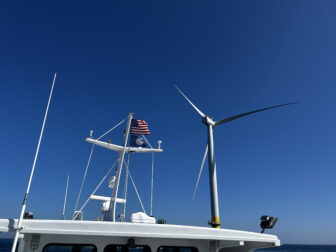Dominion had better take its plan off autopilot. The statewide campaign to stop the company’s proposed Cove Point facility that would export fracked gas has taken hold. One need look no further than the Baltimore Sun’s recent editorial to know that Chesapeake Climate Action Network and its broad coalition have been successful in raising serious questions about a disastrous project that was considered a done deal several months ago. (Read the full editorial here.)
The “stakes are high” but the “ramifications are great,” the Sun says in its editorial. It says the project would create demand for more fracking and require a new power plant just to liquefy the gas, as well as more pipelines and compressor stations across the state. It then urges federal regulators to require an Environmental Impact Statement, the most stringent type of review, rather than the paler Environmental Assessment:
[W]herever one stands on the project — excited about the jobs or fearful of what it may mean for global warming — everyone should agree that the proposal should be thoroughly examined and vetted to understand the potential impact and trade-offs involved. … Would it slow down the application process? Almost certainly. … But that seems like a small price to pay. … FERC owes that much to the people of Maryland, and frankly, given the potential impact on global warming, the rest of the country, too.
The Sun even referred to Cove Point as Gov. Martin O’Malley’s Keystone XL pipeline, because of the controversy it has created.
The Sun is not the first to use that analogy because, like the Keystone project, Cove Point would expand and entrench our reliance on fossil fuels. If we are determined to curb greenhouse pollution, we can’t simultaneously continue on as usual. Cove Point would do nothing to take us from our current destructive path. Instead, it would help make fracked gas the workhorse for the world economy for decades to come.
We already know a great deal about how this facility would affect Lusby residents as well of the rest of the state, but a study published last week emphasizes just how dangerous this scheme could be for our climate. In a study published in the Proceedings of the National Academy of Sciences, 15 climate scientists found that methane emissions from human activities are 1.5 times higher than previously estimated — and as much as five times higher for the oil and gas industry alone. Methane is the chief component of natural gas and a far more powerful greenhouse gas than carbon dioxide. Yet this planned Cove Point facility would increase fracking, pipelines and compressor stations, all of which leak climate-disrupting methane. This is not the math or the path for Maryland.
If you’ve so far missed the Maryland Crossroads: Clean Energy, Not Cove Point! tour, the last of nine stops is tonight in Columbia.





